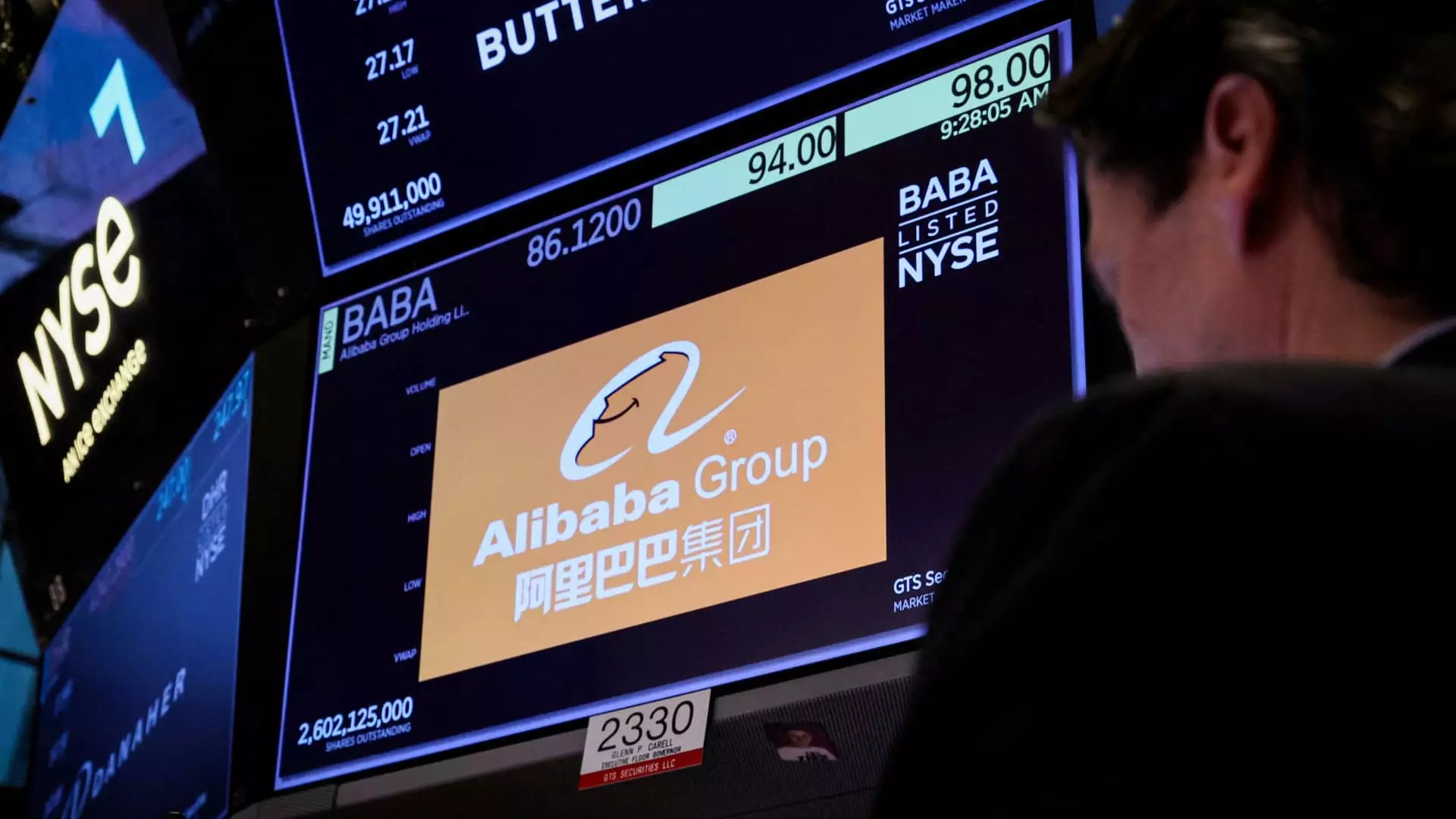As we progress into 2025, Alibaba has gained prominence as one of the standout players in the Chinese artificial intelligence (AI) sector, with its U.S.-traded shares experiencing an extraordinary surge of nearly 70% so far this year. This dynamic resurgence can be attributed to several factors, including impressive growth in AI-related product revenue and a shifting investor sentiment that favors companies capitalizing on the AI trend in China.
Alibaba has reported a remarkable six consecutive quarters of triple-digit revenue growth tied to its AI product offerings, culminating in a strong performance for the period ending in December. Notably, the company’s Qwen AI model has emerged as a formidable competitor in the market, particularly against rivals like DeepSeek, managing to secure a significant contract for iPhones sold in China. This achievement exemplifies Alibaba’s ability to leverage its technological prowess in ways that resonate with industry demands.
On February 17, the company’s founder, Jack Ma, made headlines with his public appearance at an exclusive gathering with Chinese President Xi Jinping and prominent entrepreneurs, including representatives from competing tech firms. Ma’s presence underlines Alibaba’s reintegration into the political and economic landscape of China, positioning the firm favorably among government associations, which is critical in a climate where political dynamics can significantly impact business operations.
Analyst speculation paints a buoyant picture for Alibaba’s future. Jefferies has set a price target of $156 for Alibaba shares, suggesting a potential increase of over 8% from the recent close of $143.75. UBS equity strategists have demonstrated their confidence in Alibaba’s growth trajectory by swapping out PDD for Alibaba in their model portfolio. They cite Alibaba’s strategic positioning within AI and the ongoing recovery of its e-commerce segments as key factors bolstering investor optimism.
Interestingly, as recently as a few months ago, Alibaba appeared to be lagging in market capital compared to rivals like Temu, which ignited concerns regarding its competitiveness within the core e-commerce landscape. However, the rejuvenation of Taobao and Tmall Group, which reported a 5% sales uptick in their latest quarter, hints at a recovery in Alibaba’s foundational business.
Despite the surge in interest surrounding AI stocks in China, UBS’s scoring system reveals that crowding into AI stocks has only marginally increased by 0.02 this year, contrasting sharply with the U.S. market’s AI crowding score that surged by 0.2 over the past two years. This suggests that although interest in Alibaba is reawakening, it is not yet witnessing the frenetic levels of investment seen in U.S. AI entities.
Sector Competition and Strategic Implications
As the AI landscape evolves, the competition remains fierce, particularly as giants like Tencent and Baidu continue to advance their own AI capabilities. Analysts from JPMorgan advise against a pivot from Alibaba to these laggards at this stage, perceiving distinct risks and opportunities unique to each of the companies. While Baidu has reported an 8% rise in its U.S.-listed shares, and a substantial increase in AI Cloud revenue, its stock remains a cautious investment in the eyes of market analysts.
There is speculation regarding the sustainability of Alibaba’s upward trajectory, primarily due to potential pressures such as increased capital expenditures that rose to 11% of revenue in the latest quarter compared to just 3% before. This heightened level of spending could pose challenges for future margins and profitability. Morgan Stanley has adopted a more conservative approach, assigning an equal-weight rating with a lower price target of $100, underscoring the risks posed by softer consumer demand and the slow pace of digital transformation within enterprises.
As Alibaba navigates the increasingly complex landscape of the AI industry and re-establishes its dominance within e-commerce, its future remains pivotal not only for investors but also for the broader Chinese tech ecosystem. The combination of potential for growth amid cautious spending, evolving political contexts, and competitive pressures will shape Alibaba’s trajectory in the coming months. Thus, stakeholder vigilance and strategic foresight will be essential as they unravel the unfolding narrative surrounding this pivotal company amidst a tech renaissance in China.

